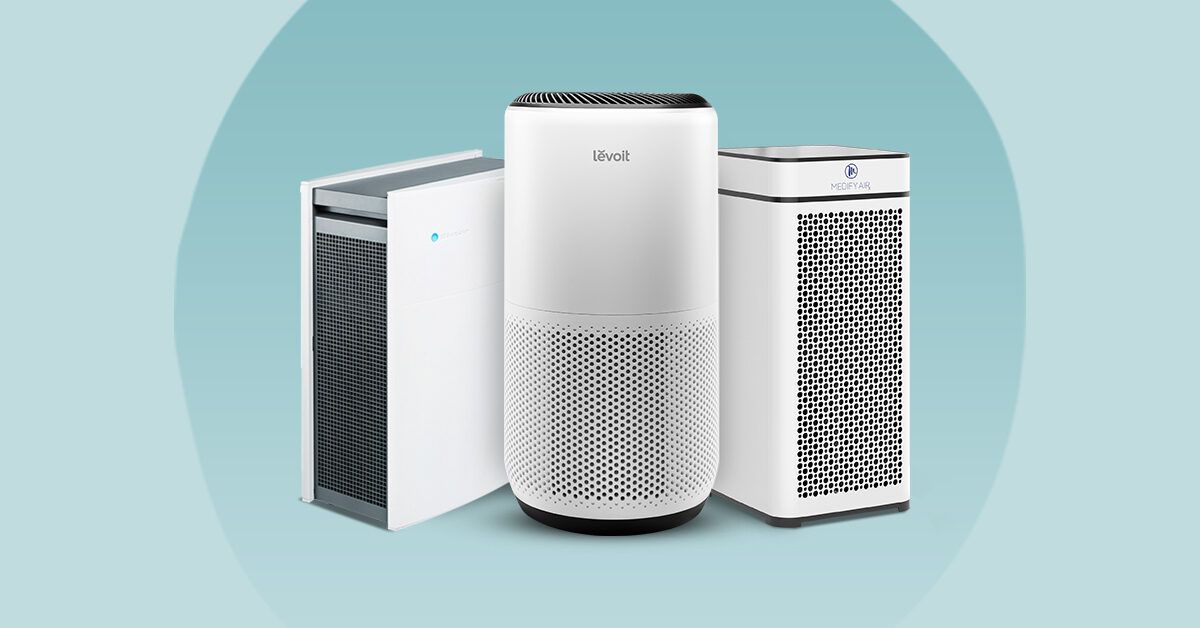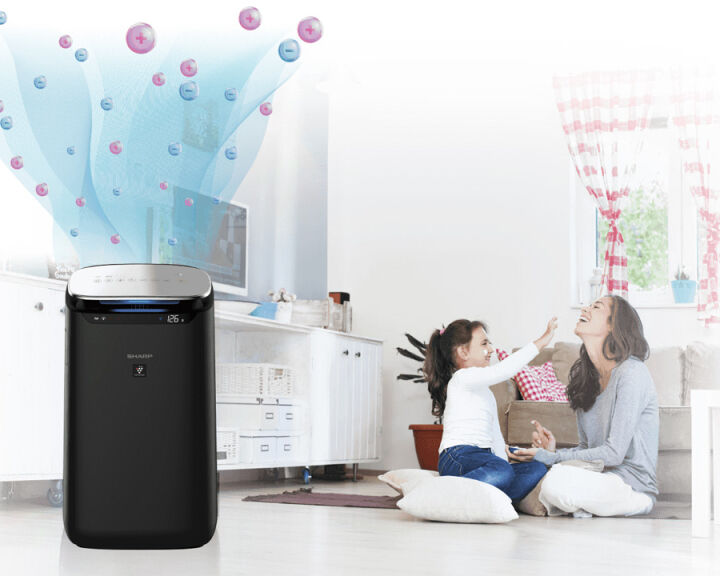Featured
Table of Contents
- – Understanding Allergic Reactions and Triggers
- – Can Air Purifiers Assist With Allergies?
- – The Science Behind Air Purifiers and Allergies
- – Are Air Purifiers Right for You? Variables to...
- – Maximizing Air Purifiers for Allergies
- – Beyond Air Purifiers: A Multi-Pronged Techniqu...
- – Living a Breath Easier Life with Allergies

Air purifiers are usually touted as a remedy, encouraging cleaner air and relief from allergic reaction signs and symptoms. Are air cleansers really worth the financial investment for allergic reaction sufferers?
Understanding Allergic Reactions and Triggers
To understand the duty of air cleansers, allow's first look into allergies and their triggers:
- The Sensitive Response: Allergies occur when your body immune system overreacts to a harmless substance, like plant pollen or dust termites. This reaction sets off the release of histamines, causing allergic reaction symptoms like sneezing, coughing, itchy eyes, and a runny nose.
- Common Allergens: Indoor allergens include dust mites, family pet dander, mold and mildew spores, plant pollen that drifts indoors, and also roach allergens. These air-borne bits can aggravate your airways and activate allergic reaction symptoms.
Can Air Purifiers Assist With Allergies?
Air purifiers function by pulling in air, filtering system out toxins, and launching cleaner air back into the area. Here's how they can possibly profit allergy victims:
- Capturing Irritants: HEPA (High-Efficiency Particulate Air) filters, an usual kind used in air cleansers, are very efficient at catching air-borne irritants like dust mites, pet dander, and plant pollen. By removing these triggers from the air you take a breath, air cleansers can help in reducing allergy signs.
- Improved Air Quality: Air cleansers can likewise remove various other irritants from the air, such as smoke, dirt, and unpredictable natural compounds (VOCs) This total renovation in air high quality can be beneficial for allergic reaction sufferers that are delicate to these added triggers.
The Science Behind Air Purifiers and Allergies
Studies have shown that air cleansers can be handy in lowering allergic reaction symptoms. Here's a take a look at some crucial research searchings for:
- A 2019 testimonial published in the journal "Existing Allergy and Asthma Records" wrapped up that air cleansers with HEPA filters can be reliable in decreasing allergic reaction symptoms and enhancing lifestyle for individuals with allergic rhinitis (hay fever)
- A 2018 research study released in the journal "Record of Allergy, Bronchial Asthma & Immunology" located that utilizing an air purifier with a HEPA filter in the bed room substantially minimized dirt mite allergen degrees and enhanced rest high quality in individuals with bronchial asthma.
Nevertheless, it is very important to keep in mind that study likewise recommends some limitations:
- Air Purifier Coverage: Air purifiers are most reliable in the area where they are placed. Their effect on allergens in other parts of your house could be marginal.
- Severity of Allergies: While air purifiers can aid, they could not be a complete service for extreme allergic reactions. Medicines and other allergic reaction monitoring approaches might still be necessary.
Are Air Purifiers Right for You? Variables to Consider
Below are some crucial variables to take into consideration when deciding if an air purifier is worth it for your allergies:
- Severity of Allergies: If your allergies are mild and well-controlled with medication, an air purifier could not be needed. Nevertheless, for those with moderate to serious allergic reactions, an air purifier can be a valuable device in handling symptoms.
- Sorts of Irritants: Think about the main triggers for your allergic reactions. Air purifiers are most efficient for air-borne irritants like dust mites, pet dander, and plant pollen. They might not be as practical for irritants like mold that expand on surface areas.
- Way of life and Setting: If you have pet dogs, live in an area with high pollen matters, or have worries about indoor air quality, an air purifier can be helpful.

Maximizing Air Purifiers for Allergies
If you decide to purchase an air purifier for allergic reactions, here are some suggestions for maximizing its performance:
- Select a HEPA Filter: Try to find an air purifier with a HEPA filter certified to catch bits as little as 0.3 microns.
- Right Size for the Space: Make sure the air purifier has a Clean Air Delivery Price (CADR) that is appropriate for the dimension of the room you intend to utilize it in.
- Placement Issues: Put the air purifier in the room where you invest one of the most time, such as your room.
- Routine Filter Upkeep: Replace HEPA filters according to the producer's directions to maintain optimal efficiency.
- Combine with Other Approaches: Air cleansers are not a one-size-fits-all remedy. Incorporate them with various other allergy administration approaches like medicine, regular cleaning, and allergen-proof bed linens.
Beyond Air Purifiers: A Multi-Pronged Technique to Allergy Monitoring

While air cleansers can be an important tool in your allergy collection, they are not a miracle drug (If you're looking to buy an Air Purifier then Air Cleaners Australia is the best destination.). An extensive strategy that integrates air filtration with other strategies is essential to achieving long-lasting allergy relief. Right here are some added techniques to take into consideration:
- Medicine: Antihistamines, decongestants, and nasal corticosteroids, recommended by your physician, can properly take care of allergic reaction symptoms.
- Allergy Screening and Immunotherapy: Recognizing your details allergens with allergy screening can pave the means for immunotherapy, a therapy that aids desensitize your body immune system to allergens gradually.
- Air High Quality Monitoring: Regular cleansing with a HEPA-filtered hoover and allergen-specific cleaning items can substantially lower allergen, family pet dander, and other allergens in your home.
- Controlling Moisture: Mold and mildew flourishes in moist environments. Using a dehumidifier can assist control humidity levels and avoid mold growth, a typical indoor allergen.
- Way of life Adjustments: If you have allergies to pollen, staying inside your home during top plant pollen seasons and bathing after hanging around outdoors can aid decrease direct exposure.
- Bed linen and Surfaces: Framing pillows and cushions in allergen-proof covers can substantially reduce allergen exposure. On a regular basis cleaning bedding in hot water aids get rid of allergens.
Living a Breath Easier Life with Allergies
Keep in mind, handling allergies is a continuous procedure. By understanding your triggers, implementing a multi-pronged strategy, and possibly including an air purifier right into your technique, you can considerably reduce allergic reaction symptoms and take a breath much easier.
Additional Factors To Consider:
- Consulting a Doctor: If your allergies are serious or not well-controlled with drug and way of life changes, seek advice from a specialist for individualized referrals.
- Air Top Quality Surveillance: Think about making use of an air high quality display to track allergen degrees in your house and readjust your monitoring strategies accordingly.
- Long-Term Financial investment: A good high quality air purifier can be a long-term investment in your health and well-being.
By taking an aggressive method and embracing a mix of these methods, you can create a healthier and allergy-friendly atmosphere, enabling you to enjoy a breath less complicated life.
Table of Contents
- – Understanding Allergic Reactions and Triggers
- – Can Air Purifiers Assist With Allergies?
- – The Science Behind Air Purifiers and Allergies
- – Are Air Purifiers Right for You? Variables to...
- – Maximizing Air Purifiers for Allergies
- – Beyond Air Purifiers: A Multi-Pronged Techniqu...
- – Living a Breath Easier Life with Allergies
Latest Posts
The Best Guide To Can Your Yeti Rambler Survive A Trip Through The Dishwasher?
Some Known Questions About Is The Dishwasher Safe For Yeti Rambler Drinkware?.
Battling the Mold Hazard: Are Air Purifiers Worth It?
More
Latest Posts
The Best Guide To Can Your Yeti Rambler Survive A Trip Through The Dishwasher?
Some Known Questions About Is The Dishwasher Safe For Yeti Rambler Drinkware?.
Battling the Mold Hazard: Are Air Purifiers Worth It?